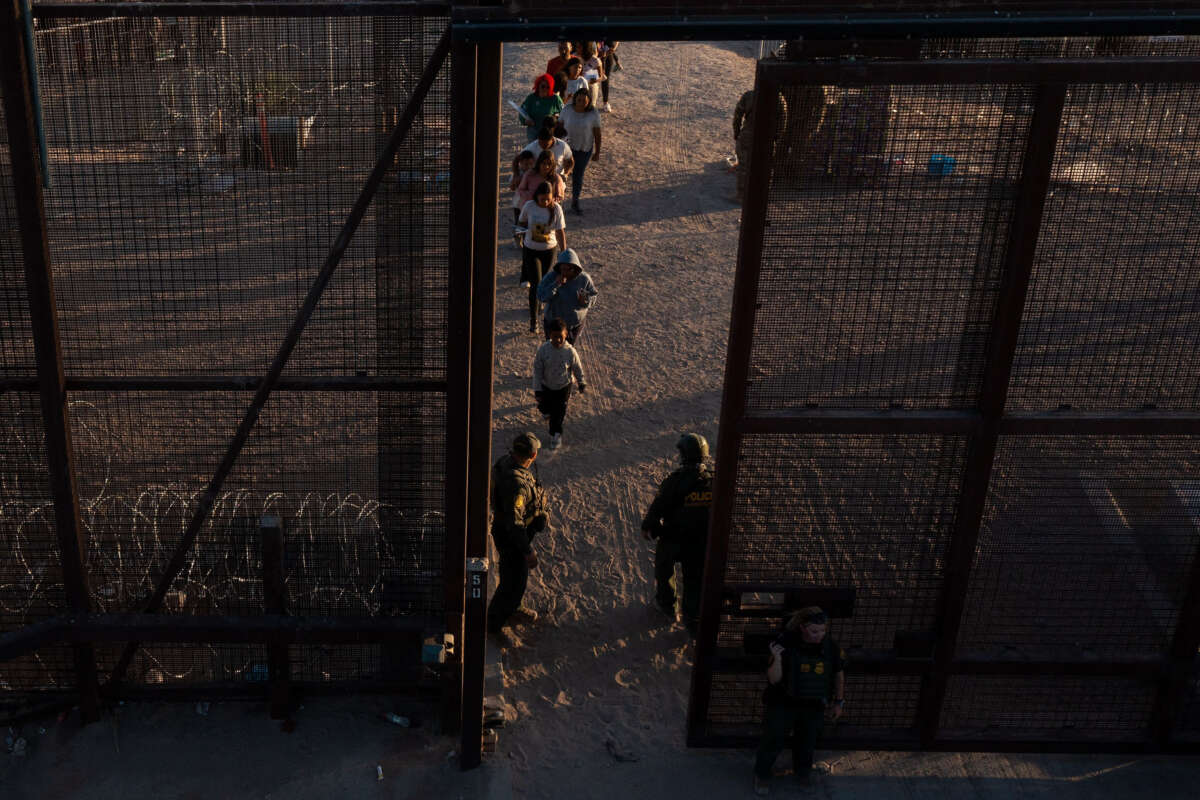Preliminary findings from an internal investigation released this week by Customs and Border Protection (CBP) showcase how officials and contractors monitoring migrant families at the U.S.-Mexico border were grossly negligent in refusing to treat a visibly sick child, who later succumbed to her illness, earlier this month.
Eight-year-old Anadith Tanay Reyes Álvarez and her family arrived in Brownsville, Texas, on May 9. The following day, she and her family underwent medical screening, during which time her health history was shared with screeners, including her history of congenital heart disease and sickle cell anemia.
Despite these warnings, when Reyes Álvarez became alarmingly sick later on, multiple pleas from her parents to transport her to a hospital were ignored.
From May 9 to May 14, the girl interacted with CBP officials and medical contractors at least nine times, with Reyes Álvarez complaining of several health issues, including fever, flu-like symptoms and body pain. Medical personnel treated her with Tamiflu, and tried to lower her body temperature with other fever-reducing medication, ice packs and cold showers.
Reyes Álvarez’s temperature reached as high as 104.9, on May 16, and she was still not allowed to go to a hospital, the report noted.
“Despite the girl’s condition, her mother’s concerns, and the series of treatments required to manage her condition, contracted medical personnel did not transfer her to a hospital for higher-level care,” the report from the CBP Office of Professional Responsibility stated, which found that officials and contractors failed to properly treat the child.
On May 17, a nurse practitioner treating Reyes Álvarez denied her parents’ requests, four times, to take her to the hospital. When her parents returned with her, in their arms and apparently suffering from a seizure, an ambulance was finally called and CPR was administered.
Reyes Álvarez died about an hour later, after finally being admitted to a local hospital.
The report offers a damning recollection of events for a death that likely could have been prevented, had Reyes Álvarez been granted the ability to get better treatment earlier on. The report is also an incomplete assessment of what went on — the investigation is ongoing, but is limited in what information it can collect, as surveillance cameras at the facility were not working at the time of her death.
Immigrant rights activists and experts sounded off on the report’s initial findings.
“Why is CBP/BP essentially in charge of refugee reception in this country? [It’s] past time to restructure refugee reception at our borders, with humanitarian agencies leading,” tweeted Eleanor Acer, the refugee protection director at the humanitarian organization Human Rights First. Acer also blamed CBP, under the Biden administration’s watch, for the “horrifying treatment” of Reyes Álvarez.
“How was she not immediately taken to the hospital? This record of harm and negligence by CBP must translate to immediate justice for Anadith’s family!” demanded Alvaro Corral, an assistant professor of political science at the University of Texas Rio Grande Valley who specializes in immigration policy and Latinx politics.
“Anadith Tanay Reyes Álvarez died after her 9th day in Border Patrol custody. Despite having a 104.9 degrees fever, the nurse practitioner denied an ambulance ‘3 or 4 requests from the girl’s mother.’ This death was preventable,” wrote Pedro Rios, a human rights advocate and the director of the American Friends Service Committee’s U.S.-Mexico Border Program.
Angry, shocked, overwhelmed? Take action: Support independent media.
We’ve borne witness to a chaotic first few months in Trump’s presidency.
Over the last months, each executive order has delivered shock and bewilderment — a core part of a strategy to make the right-wing turn feel inevitable and overwhelming. But, as organizer Sandra Avalos implored us to remember in Truthout last November, “Together, we are more powerful than Trump.”
Indeed, the Trump administration is pushing through executive orders, but — as we’ve reported at Truthout — many are in legal limbo and face court challenges from unions and civil rights groups. Efforts to quash anti-racist teaching and DEI programs are stalled by education faculty, staff, and students refusing to comply. And communities across the country are coming together to raise the alarm on ICE raids, inform neighbors of their civil rights, and protect each other in moving shows of solidarity.
It will be a long fight ahead. And as nonprofit movement media, Truthout plans to be there documenting and uplifting resistance.
As we undertake this life-sustaining work, we appeal for your support. Please, if you find value in what we do, join our community of sustainers by making a monthly or one-time gift.
